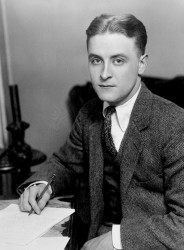The Fitzgeralds
F. Scott Fitzgerald and the Age of Excess
Fitzgerald was a perfect chronicler of his time. He was both an avid participant in, and a stringent critic of, the culture of prosperity that marked the 1920s. In Gatsby, his alter ego, Nick Caraway, recalls wistfully the America of his youth. In Nick’s mind, the Middle West embodied a lost age—a simpler time before telephones and movie palaces and department stores.

F. Scott and Zelda Sayre Fitzgerald Biographies
Best known for The Great Gatsby (1925) and Tender Is the Night (1934)—two keystones of modernist fiction—Francis Scott Fitzgerald (1896-1940) was the poet laureate of the “Jazz Age,” a term he popularized to convey the post-World War I era’s newfound prosperity, consumerism, and shifting sexual mores.
The World of G. Scott Fitzgerald
A selection of images from the life of F. Scott Fitzgerald
Echoes of the Jazz Age
The classic essay by F. Scott Fitzgerald exploring the highs and lows of the 1920’s. “It was an age of miracles, it was an age of art, it was an age of excess, and it was an age of satire.” Take note of what parallels you may draw between the 20’s of the past century and that of the 21st.
